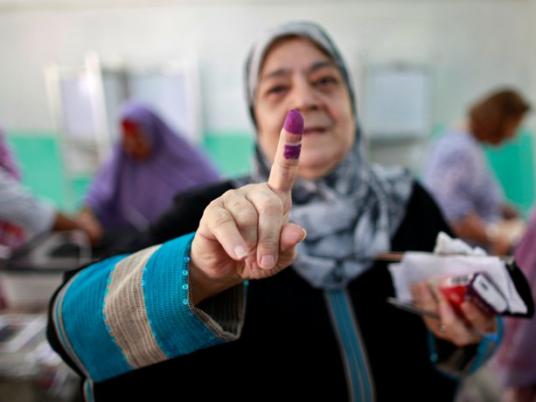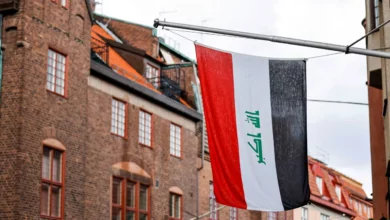Despite the promise that it would not involve itself in politics beyond the transition of power to a civilian government, recent events in the media have led to questions about the military possibly looking to stay on beyond that point, with the extension possibly taking the form of a presidential candidate from amongst the military.
State media coverage of late has featured the more pronounced presence of chairman of the Supreme Council of the Armed Forces (SCAF), Field Marshal Hussain Tantawi, as a potential candidate for the role formerly reserved for ousted President Hosni Mubarak.
This has been exacerbated by some of Tantawi’s actions themselves. Last month he appeared in a video clip that showed him walking in downtown Cairo in a civilian suit, not his usual military uniform. At that point mutterings were heard about a potential presidential bid. Indeed, after criticism it has never before had to deal with, the military is keen to display a more media-friendly image, highlighting the popular support it has from the Egyptian people.
There were the overblown celebrations for 6 October, which extended over three days, and on 31 October, Tantawi’s 76th birthday, the erection of the world tallest freestanding flag, to much military fanfare.
The state papers for that day boasted pictures of Tantawi saluting while overseeing naval military maneuvers and platitudes about the military’s ability to secure Egypt’s domestic and external fronts.
As Tantawi’s personal star began to rise, a coalition entitled “Egypt Above All” began putting up posters all over Cairo calling for Tantawi to become Egypt’s first post-Mubarak President and to continue to oversee the transition.
Mahmoud Atteya, a lawyer and member of the coalition, denied that the campaign had any direct connection to the SCAF or Tantawi, insisting that it was the brainchild of himself and his friends. “We see someone from the military institution as a suitable appointment at this time, for one term, and we picked Tantawi because he is the head of the institution,” he said.
The reason why Atteya wants to see a president from the military – although he must win through elections, he stressed – is that it is the only institution that is still functional. He argued that it wasn’t right that a sector of society, the military, be excluded from the presidential elections. If Tantawi refuses to run, then the coalition will support anyone from the military leadership because “they are the most suited for the moment we are in, and we are in need of order and stability.”
Political commentator and former TV host Hamdy Kandil venomously criticized the campaign and those behind it in a column for Al-Masry Al-Youm. After pointing out that the group shared a slogan with Hitler’s Nazi Party, Kandil went on to say that this direction was contrary to all the protests and criticisms currently aimed at the SCAF. He also criticized Atteya for claiming to speak on behalf of the “silent majority.”
“No one trusts that the SCAF will withdraw completely from the political scene, and those who believe that feel that the SCAF will try and carve out a special place for itself in the upcoming democratic system,” he wrote.
Presidential candidate Mohamed Selim al-Awa also strenuously condemned the campaign, stating that it drove a wedge between the people and the army. He said he was certain that the SCAF wouldn’t submit candidates for the presidency, and there needed to be a law to that effect. He added that he would take part in another revolution if need be for that purpose.
Atteya felt that the reaction to the campaign was too strong, saying, “We thought after the revolution that we could say what we want without being attacked like this. We are practically expressing our opinion.”
“We were raised to believe that the military is part of us and is our protector here and abroad. The new generation does not have this sense that we do. We don’t disagree with anyone, and we were happy with the revolution, and we ask people to respect our opinions, and if they find it wrong then to explain to us why, rather than shouting at us,” he added.
State media and the military
When the military moved onto Egypt’s streets during last winter’s uprising, one of the first state assets that they moved in to protect was Maspero, the state radio and television building.
As events began to unfold over the following months, more and more people became critical of the military for a variety of things: the slow pace of reform, the transgressions against protesters, military trials for civilians, crackdowns on civil society, and the seeming unwillingness of the cabal of military rulers to adopt the ideals of a popular uprising.
At the heart of this to-and-fro has been the state-owned media, exemplified by the building in Maspero and the state-run newspapers. As criticism has mounted in certain quarters, the state media has increasingly pushed the narrative of military-as-savior. This was most evident during the events of 9 October, when armored military vehicles ran over Coptic protesters in front of Maspero.
Journalist and media expert Huweida Mostafa said, “Maspero and the state newspapers are of vital importance to those in power because their influence and huge resources, human or otherwise, at their disposal. There are other media outlets now, but the official media, as it is known, is still the main link to the masses and is considered part of national security.”
Nabil Abdel-Fatah from the Al-Ahram Center for Political and Strategic Studies said that it was ingrained in the culture of state media to cater to the current power structure, and so it had replaced Mubarak and the figures of his regime with the military and its figurehead, Tantawi. “It’s a culture of political and media hypocrisy,” he said.
There has been much debate about restructuring the state-run media empire, but much like the Ministry of Interior, little has changed in practical terms. In any event, it is the minds that need restructuring as much as the system.
“The ties of allegiance are still strong, and the state media still takes its orders from the military and the old Mubarak institutions like the State Security apparatus under its new name of the National Security Agency. Don’t forget that those in power are the ones who hire the state newspaper editors and the managers in Maspero,” Abdel-Fatah said.
Mostafa said, “When there are troubles, many condemn this building [Maspero] and there is a reason for that. On the other hand, it is a tool for the military to portray their viewpoint to the masses. State media is inextricably linked to the political power structure in Egypt, and that has always been its traditional role, and will not be changed overnight.”
“So the direction is always in favor of those in power,” she added, “and this is the case even without direct orders from above; this is their natural inclination.”




